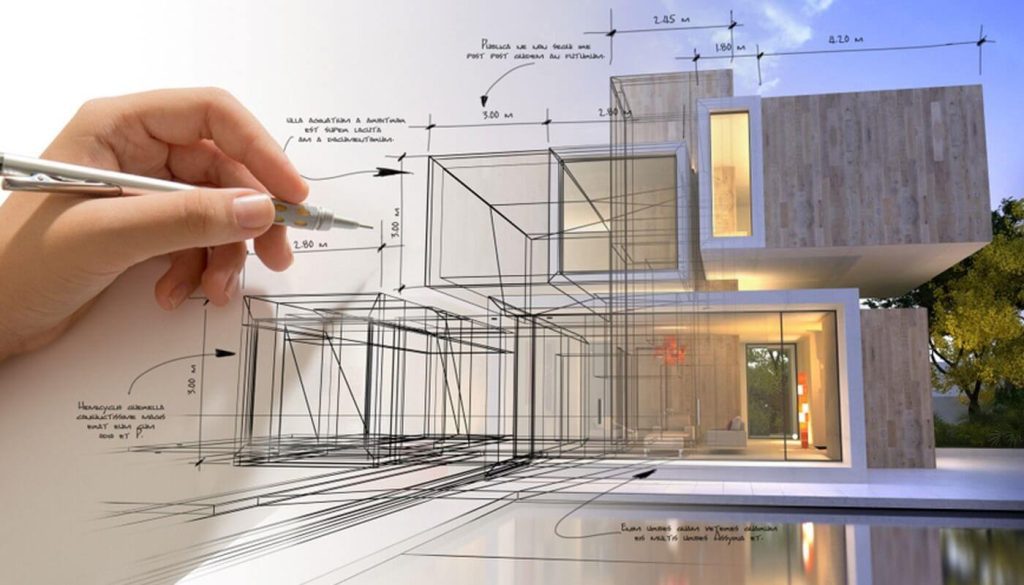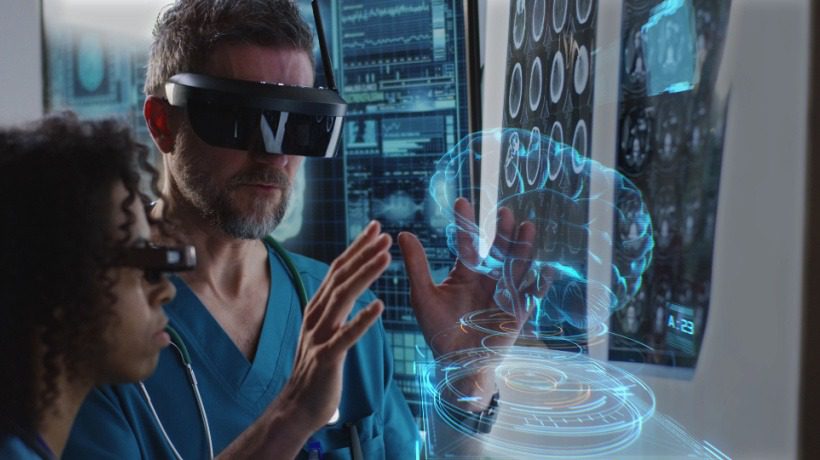Virtual Reality (VR) has emerged as a groundbreaking technology that is revolutionizing the way we experience and interact with digital content. In recent years, VR has gained significant momentum, and in 2023, it continues to push boundaries and open new frontiers across various industries. This article explores the transformative power of VR, its applications, and the impact it has on different sectors.
Entertainment and Gaming
The entertainment and gaming industries have embraced VR wholeheartedly. In 2023, VR gaming experiences have become more immersive and realistic than ever before. Players can step into virtual worlds, interact with objects and characters, and engage in captivating gameplay. The level of immersion and interactivity offered by VR gaming has transformed the way people enjoy and engage with digital entertainment.
Education and Training
VR has immense potential in the field of education and training. It allows students to explore complex concepts in a hands-on and engaging manner. In 2023, VR will be used to create virtual classrooms, where students can participate in virtual field trips, conduct science experiments, or even travel back in time to historical events. VR-based training programs are also gaining popularity, offering realistic simulations for various industries such as healthcare, aviation, and military training.

Architecture and Design
VR is revolutionizing the architecture and design industries by providing immersive experiences for clients and professionals alike. In 2023, architects and designers can create virtual walkthroughs of buildings and spaces, enabling clients to experience the design before it is constructed. VR allows for real-time adjustments, improving collaboration and saving time and resources. Designers can also experiment with different materials, lighting, and spatial configurations in a virtual environment, enhancing the creative process.
Healthcare and Therapy
VR is making significant strides in healthcare, offering innovative solutions for therapy, rehabilitation, and medical training. In 2023, VR is being used to create immersive environments that help patients manage pain, reduce anxiety, and overcome phobias. Medical professionals can also utilize VR simulations for surgical training and planning complex procedures. The immersive nature of VR allows for a safe and controlled environment to practice critical skills.
Tourism and Travel
VR has transformed the way people explore and plan their travel experiences. In 2023, virtual tours and travel experiences enable individuals to visit destinations virtually, providing a taste of the location before making travel decisions. VR-powered travel experiences offer 360-degree views, immersive storytelling, and interactive elements, giving users a sense of presence and excitement.
Engineering and Manufacturing
VR is playing a vital role in engineering and manufacturing industries. In 2023, engineers and manufacturers can use VR to visualize and simulate product designs, assembly processes, and ergonomics. This enables them to identify potential issues and make necessary adjustments early in the development cycle, saving time and costs. VR also facilitates collaborative design reviews and enhances communication between teams.
Conclusion
Virtual Reality (VR) continues to reshape industries and unlock new possibilities across sectors. Whether it’s immersive gaming experiences, interactive education, realistic architectural visualizations, or innovative healthcare solutions, VR has the power to transport users to new realities. In 2023 and beyond, the potential for VR to revolutionize how we work, learn, and entertain ourselves is limitless. As technology advances and accessibility improves, VR is set to transform the way we experience the world around us.
FAQs
Can VR cause motion sickness?
While some individuals may experience motion sickness in VR, advancements in technology, such as improved tracking and refresh rates, have significantly reduced this issue. Taking breaks and gradually acclimating to VR experiences can help mitigate any discomfort.
What equipment is needed for VR experiences?
VR experiences typically require a VR headset, which can be tethered to a computer or standalone. Some headsets also require motion controllers for interactivity. Additionally, a capable computer or gaming console may be needed for high-end VR experiences.
Is VR only for gaming?
No, VR has applications beyond gaming. It is being used in education, healthcare, architecture, manufacturing, and more. VR offers immersive experiences that can be tailored to various industries and user needs.
Are there any health concerns associated with VR?
While VR is generally considered safe, it is important to take breaks and maintain proper ergonomics during extended VR sessions. It is advisable to follow manufacturer guidelines and use VR in moderation.
How is VR different from augmented reality (AR)?
VR immerses users in a completely virtual environment, while AR overlays digital elements onto the real world. VR creates a fully simulated experience, while AR enhances the real-world environment with digital content.
Virtual reality (VR) has become a technological boost that has alternated the way we experience and interact with digital content. VR has gained tremendous momentum in contemporary years and will continue to push boundaries and crack new ground in business through 2023. This article explores the transformative power of VR, its applications, and its impact on different industries.

Fun and Games
The entertainment and gaming industry has embraced VR wholeheartedly.
In 2023, the VR gaming experience will be more fortunate and active than ever before. Players can enter the virtual world, interact with objects and characters, and aid in competitive games. Access and communication through VR games have alternated the way people enjoy and engage in digital entertainment.
Education and training
VR has great potential in education and training.
It empowers students to explore complex concepts in a collective and engaging way. By 2023, VR will be used to create virtual classrooms where students can booty virtual tours, conduct scientific dossier and even time travel to past events. VR-based training programs continue to advance in popularity, providing realistic testing for various industries such as healthcare, aviation, and military education.
Architecture and Design
VR is revolutionizing the architecture and design industry by bottomless immersive experiences for both people and artist
By 2023, architects and designers will be able to create virtual tours of buildings and spaces, allowing people to experience design before they even build. VR allows real-time updates, advanced collaboration, and saves time and resources. Designers can also add to the gifted process by examination with different objects, lighting and space layout in a virtual environment.
Medicine and Health Services
VR is making a colossal brunt in the field of medicine by introducing new solutions for treatment, improvement and medical education.
By 2023, VR will be used to create immersive environments that help patients manage pain, reduce stress and overcome phobias. Doctors can also take advantage of VR simulations to plan surgical training and complex procedures. The advantages of VR allow crucial skills to be adept in a safe and controlled environment.
Tourism and Tourism
VR is changing the way people search for and plan travel experiences.
By 2023, virtual tours and travel experiences will enable people to visit amazing places by providing on-site experiences before making travel decisions. VR-powered travel experiences offer 360-degree views, immersive best sellers and interactive comfort that make users feel absorbed and happy.
Engineering and Manufacturing
VR plays a crucial role in engineering and construction By 2023, engineers and manufacturers will be adept at using VR to visualize and simulate product design, assembly action and ergonomics.
This allows them to identify potential problems and make necessary adjustments earlier in the development cycle, saving them time and money. VR also facilitates collaborative design inquiry and better team communication.
Conclusion
Virtual reality (VR) continues to evolve businesses and create new possibilities across industries. Whether it’s a gaming action, an interactive experience, an ocular therapy or a new medical treatment, VR has the power to transport users to a new existence In 2023 and beyond, the potential of VR to alter the way we work, determine and play is limitless.
As technology derives and becomes more available VR will adjust the way we experience the world around us.

Opportunities Offered by Virtual Reality (VR)
Virtual reality (VR) opens up a world of possibilities and capabilities across industries. Its emotional and interactive confluence is changing the way we experience digital content and collaborate with our environment. In this article, we explore the opportunities virtual existence offers and its potential impact on different industries.
Enhanced Education and Training
VR provides unique opportunities for education and training.
It provides hands-on activities that enhance learning outcomes by allowing students to immerse themselves in realistic simulations and interactive environments. From medical procedures to hazardous job training, VR enables people to practice their skills in a safe and controlled environment, enhancing performance and improving knowledge retention.
Breakthrough Gaming Experience
Gaming has consistently been one of the central drivers of VR technology. VR offers players an unprecedented action by approaching a virtual world and collaborate with characters and objects alike never ahead
The gaming industry continues to use VR to create interactive, engaging and lifelike experiences that engage gamers and push the boundaries of interactive entertainment.
Medical Transformation Applications
VR has the potential to revolutionize medical form in many ways. It can be used for pain management, interference during treatment, and the treatment of mental disorders. VR simulations allow doctors to perform complex logistics and treatments, improving their skills and patient outcomes.
Additionally, virtual reality can help patients gain strength and intelligence by aiding physical and cognitive improvement.
Architectural Visualization and Design
VR changes the architectural design and visualization process. Architects and designers create virtual models of buildings and spaces, allowing clients to experience and interact with designs before construction begins. VR enables participants to see the scale, layout and aesthetics of the project, leading to better decision making and better design.
Immersive Travel and Tourism Experience
VR offers exciting opportunities for the travel and tourism industry. It allows people to explore places, areas and attractions by providing a preview of what to expect before planning a trip. VR can also transport people to remote or inaccessible places, providing an immersive travel experience. These technologies have the potential to change the way people research, plan and participate in the travel industry.
Enhance collaboration and communication
VR has the ability to enhance collaboration and communication in any environment. Remote teams can come together in a shared virtual environment wherever they are, fostering collaboration and creativity. VR facilitates virtual meetings, training and presentations, permissive interaction and collaboration. It link the gap between physical and virtual communication accomplishing people feel current and akin.

Cultural Conservation and Heritage
VR adds convenience to conserve and experience culture. It allows people to visit historical places, museums, art galleries even if they cannot go to their venues. By exhilarating historical events, VR grant users to immerse themselves in big moments and gain a deeper understanding of cultural heritage.
Conclusion
Virtual Reality (VR) presents a world of opportunities for many industries.
Whether it’s changeable education and training, developing gaming experiences, developing health, or changing the way we build and see places, VR has the potential to create good and advantageous experiences. As technology continues to derive VR will undoubtedly unlock new possibilities, bear new adjustment and shape the future of full industries.










